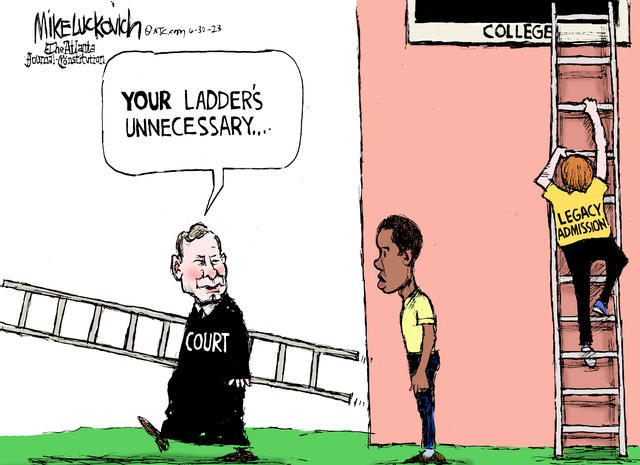
You hear about them almost every year, a student who gets into all 8 Ivy League colleges. They are celebrated in the media, and people many wonder “What is their secret?”.
I instead wonder, “Why did they waste everyone’s time, including their own?” With all 8 acceptances, it’s likely that applied early and were accepted to Harvard, Yale or Princeton (these are the Ivies with non-binding early action). And after that acceptance, they then decided to apply to the other five Ivys during regular decision.
I can’t imagine many scenarios where a student thought they might be equally happy in urban Harvard vs rural Cornell, highly liberal Yale vs conservative (by comparison) Dartmouth, open-curriculum Brown vs rigid-core Columbia, and pre-professional UPenn vs the relatively intellectual Princeton. My kindest interpretation of these students is that they didn’t think about fit beforehand but will have to do so after acceptances.
Why fit matters
Charlie Baker, former Massachusetts governor, on his biggest regret:
“Not going to Hamilton College. I never really felt comfortable at Harvard”
Quote from Boston Globe article, when Baker first ran for governor
I believe fit matters because you will do your best work in a college where you meet your intellectual peers, are as challenged academically as you want to be, are accepted socially, and enjoy local activities outside of schoolwork.
Far too many students make the mistake of choosing prestige over fit. They apply to colleges based upon rank rather than where they are most likely to thrive.
The goal of this post is to show you that there are colleges that are likely to be a good fit for you, at multiple levels of selectivity. It is worth the time to determine which colleges are a good fit for you and apply to those.
Fit and affordability
Many people may believe that choosing based upon fit is an unaffordable luxury. If the only affordable option is a poor fit, then yes, attend college there and make the best of it. But note that there are colleges at various levels of selectivity, that promise to meet the full financial need of the family. You may find that colleges that are a good fit are more affordable than you think.
Criteria for evaluating fit
There are many different criteria that a student may consider to determine fit, including the following:
- Academic Intensity: Do you want a college that will challenge you intellectually?
- Core: Do you want a college that exposes you to various subjects through a comprehensive core? Or do you want freedom to choose your own curriculum.
- Freedom to Choose Major: Many colleges force you to choose your major when you apply, and make movement difficult after you join. Others don’t. How important is that.
- Intellectual vs Pre-professional: What is your primary goal with college? Is it to learn? Or is to prepare you for the next step in your career?
- Location: Do you prefer an urban campus with lots to do in the city? Or a rural campus with easy access to nature? Does it matter how far away you are from home?
- Political Leanings and Tolerance: Where is the campus on the political spectrum? How tolerant is the campus to other viewpoints? How activist is it?
- Racial Diversity: Is the campus relatively homogenous, or diverse? Is the campus supportive of all racial groups? Do you need a minimum percentage of your race to make you feel at home?
- Religion: If religion is important to you, does the campus have enough other students practicing the same faith? Are non-believers supportive of your religion?
- Size: Does a large student body exhilarate you, or make you feel like a number?
- Strength in your intended field: How strong is the college in the major(s) you are considering?
Given all these possible criteria, it’s obvious that no college will be a perfect fit. But it is also clear that some colleges can be far better fits than others.
Now that I have explained fit, you should next read my post on how to build your college list. It shows examples of choosing colleges based upon fit across multiple selectivity tiers.




